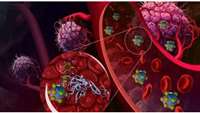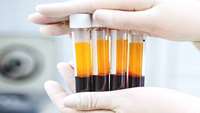New method can improve drug delivery in implants
An innovative biomaterial discovery by researchers at the University of Toronto in collaboration with Ripple Therapeutics Inc., has established a method that yields better control over drug release profiles in implants and has the potential to disrupt the classical drug delivery market.
Scientists develop new gene therapy for eye disease
Scientists from Trinity College Dublin have developed a new gene therapy approach that offers promise for one day treating an eye disease that leads to a progressive loss of vision and affects thousands of people across the globe.
A collaborative study involving researchers from Lund Stem Cell Center (Sweden) and University College London (UK) has identified a novel method of isolating ‘young’ stem cells present in old mice.
Their research demonstrates that activity of mitochondria may be a stronger indicator of stem cell fitness than age.
The evolving role of platelet-rich plasma (PRP) in plastic surgery
Platelet-rich plasma (PRP) treatment, which involves injecting a small amount of a patient's own blood to release various growth factors from platelets, continues to increase in popularity.
Researchers discover clue to how to protect neurons and encourage their growth
Many neurodegenerative conditions, from glaucoma to Alzheimer's disease, are characterized by injury to axons—the long, slender projections that conduct electrical impulses from one nerve cell to another, facilitating cellular communications. Injury to axons often leads to neuronal impairment and cell death.
Adipose stem cells could be controlled by omega-3
Researchers have found that adipose stem cells can sense and respond to the levels of omega-3, altering their behavior.












